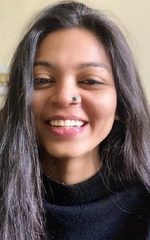
Intersectionality research in public health: A cross-country fireside
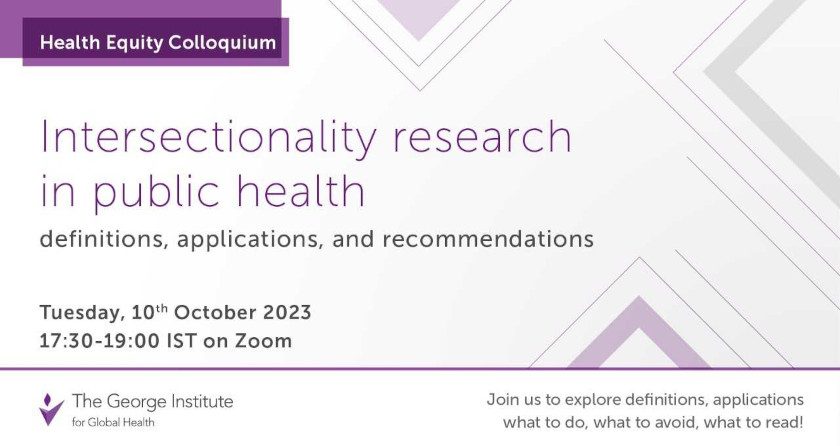
The goal of this session is to share applications and experiences using intersectionality in research. The speakers will be led through a series of questions and reflections followed by open Q&A.
Speakers
Professor Anuj Kapilashrami
An Interdisciplinary social scientist trained in Public Health and Sociology and Professor in Global Health Policy and Equity in the School of Health & Social Care.
Kapilashrami has longstanding research experience in health policy and systems research, with particular interest in the structural determination of health and the implications for equity and rights. She has published extensively on health inequalities, social movements and privatization and commercialization of healthcare. Her current work advances an intersectional approach to examine health inequalities, especially among multiply disadvantaged populations and mechanisms for their engagement in policy processes. She developed technical guidance for WHO EMRO on community participation in health service coverage planning/ priority setting. She leads the NIHR Global Health Research group on Gender, Violence and Mental health among Migrants in precarious Situations (GEMMS) in Southern Asia & Southern Africa, and INNOVATE, a UK-based intersectionality-focused consortium tackling inequalities in mental health in Essex.
She is Chair of Medact, trustee of Health Poverty Action, Founding Chair of the Migration Health South Asia network, and a longstanding member of the People’s Health Movement, formerly as Chair of PHM Scotland. Kapilashrami also serves on the Gender Advisory Panel for WHO’s Human Reproduction Programme.

Jagnoor
Associate Professor Jagnoor Jagnoor serves as the Program Lead for Injury at The George Institute. She also holds the position of Co-Director at the WHO Collaborating Centre for Injury Prevention and Trauma Care and serves as a member on WHO – Global Alliance for the Care of the Injured, and the Global Alliance for Drowning Prevention. She is the Convener for the 15th Global Conference on Injury Prevention and Safety Promotion.
Dr. Jagnoor's research is dedicated to investigating the impact of injuries, with a strong emphasis on addressing equity and vulnerability in the distribution of injury burden and it’s differential outcome. Her work also involves evaluating various interventions aimed at reducing this burden and providing crucial contextually relevant evidence for improved patient-relevant recovery outcomes.
Dr. Jagnoor's approach incorporates an intersectional lens, which she applies to her work in injury prevention policies and programs. She is enthusiastic about staying current with and implementing methodological advancements within the realm of intersectionality.
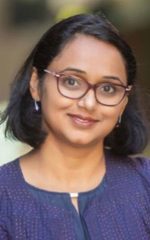
Mary E John
Mary E John was formerly Professor at the Centre for Women’s Development Studies, New Delhi. She was Director of the Centre from 2006-2012 and before that the Deputy Director of the Women’s Studies Programme at the Jawaharlal Nehru University, New Delhi from 2001-2006. Her most recent publications include the co-edited volume Women in the Worlds of Labour: Interdisciplinary and Intersectional Perspectives and the monograph Child Marriage in an International Frame: A Feminist Review from India. She was the co-chair of a Task Force set up by the University Grants Commission to look into sexual harassment on Indian campuses and brought out the report Saksham: Measures for Ensuring Safety of Women and Programmes for Gender Sensitization on Campuses (2013). She has authored and co-authored reports and articles in the field of adverse child sex ratios and gender biased sex selection. Her areas of interest span the fields of women’s studies and feminism within the social sciences, with particular interest in studies pertaining to marriage and family, education and labour, as well as a more philosophical interest in the concepts and frameworks of feminist theoretical analysis.
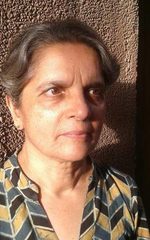
Facilitator: Devaki Nambiar
Devaki Nambiar is Program Director, Healthier Societies Strategy at the George Institute for Global Health India with appointments at the Manipal Academy of Higher Education, India, the University of New South Wales, Australia, and the Harvard TH Chan School of Public Health, USA. She is a Health Policy and Systems Researcher (HPSRer) with over two decades of experience working in India and other Low- and Middle-Income Countries on decision-maker demand-driven research, postgraduate teaching in HPSR, as well as technical assistance with an emphasis on community action for health, social exclusion, health equity and health for all. She is a former Fulbright, Fogarty, and NIH scholar, and Fellow of the Wellcome Trust/Department of Biotechnology India Alliance. She advises the WHO on health inequality monitoring, national programme re-orientation, and guideline development to leave no one behind. She serves on the Lancet-Chatham House Commission on Improving Population Health post COVID-19, the Lancet Commission on Sustainable Healthcare, and advises Lancet Commissions on Women and Cancer as well as on Reimagining India's Health System. She is a member of the People's Health Movement and the Medico Friends Circle. She also serves on the Board of Health Systems Global and the Research Advisory Board of the Institute of Public Health, Bengaluru, India.
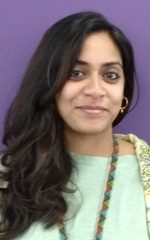
Facilitator: Shraddha Mishra
Shraddha Mishra (she/her) is an MPH student in Social and Behavioural Health Sciences at the Dalla Lana School of Public Health, Toronto. She integrates research, health promotion and community participation to help address the social determinants of health and move towards social justice. As a consultant at The George Institute for Global Health India, she serves on the SPHERE Secretariat.
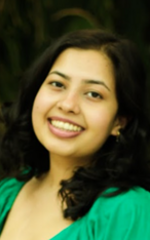
Facilitator: Misimi Kakoti
Misimi Kakoti is currently working as a Research Officer at The George Institute, India. Her research interests lie in the intersection of gender, rights, and equity in health policy and systems. She has been primarily involved with the documentation work on community action in health in India with the method of Witness Seminar, piloting the 8Quity checklist tool, and the CEDAW implementation review project at The George Institute for Global Health. She is currently working with the SPHERE consortium on advancing social participation for UHC. She has previously worked with the Rapid Evidence Synthesis Unit at The George Institute. She also supports the Secretariat of the Health Equity Network India (HENI).
